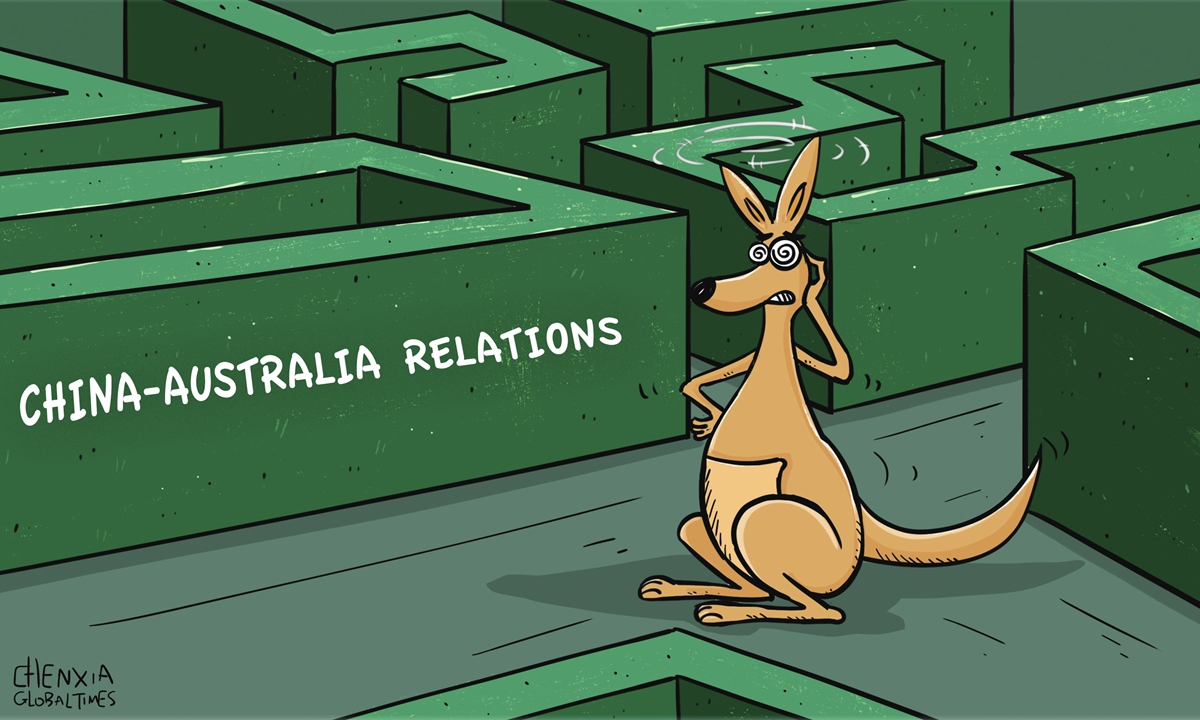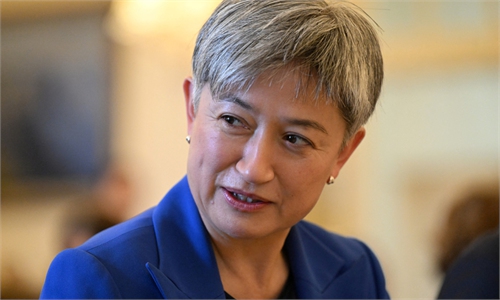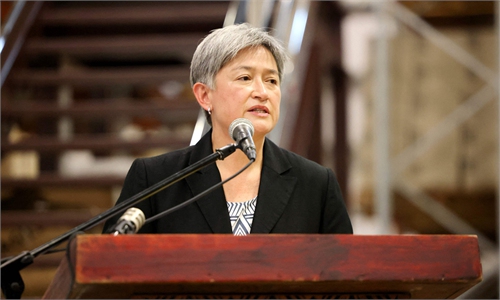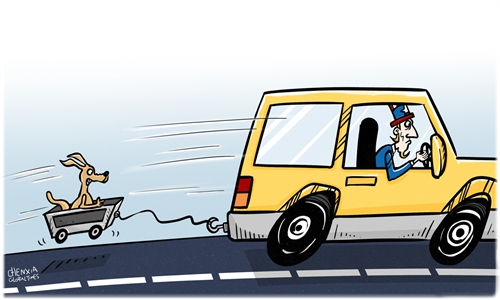
Illustration: Chen Xia/GT
As most see Australian Foreign Minister Penny Wong's visit to China this week as an "ice-breaking" diplomatic activity, some in the West appear to still focus most of their emphasis on the trade disputes between the two countries. For instance, a Reuters report detailed on Monday how "Australia seeks to resolve China trade woes as foreign minister heads to Beijing."Yet, efforts to lift China-Australia relations out of the current predicament cannot be limited to the perspective of resolving bilateral trade issues only. Even if there are some specific issues that cannot be resolved in the short term during the process of warming up bilateral relations, efforts in continuously moving forward the relationship remain worthwhile.
Trade is only one aspect of China-Australia relations, and the trade disputes between the two sides are rooted in the previous downward spiraling in bilateral ties. There will be no end to frustrations about bilateral economic and trade cooperation if the relationship between China and Australia continues to be stuck in deepfreeze. Only an overall thawing of bilateral relations can promote the recovery of bilateral economic and trade ties.
This may be why Wong's visit coincides with the 50th anniversary of the establishment of diplomatic relations between the two countries on Wednesday. The choice of the timing itself has sent a positive signal of warming relations between China and Australia.
Indeed, since Anthony Albanese took office as the Australian prime minister, there have been a series of positive signals indicating Australia's willingness to improve and develop its relations with China, which have apparently lifted market confidence, conducive to the development of bilateral economic and trade cooperation.
Of course, it remains to be seen whether these positive signals will eventually translate into an overall improvement in China-Australia relations.
For a long time, Australia has claimed to act as a bridge between the East and the West, a positioning which is believed to help make it a winner in the Asian Century. In terms of its geographical location and its relationship with East Asian countries, there is no doubt that the positioning is in Australia's fundamental interests.
If Australia chooses to be a bridge, then it should not be a deputy to the US in containing China. The two roles contradict each other. This is because the positioning of the bridge has determined that the relationship with China that is in Australia's interests should be one of cooperation, not confrontation.
Yet, regrettably, over the last few years, Australia has been caught up in the US strategy and has served as a belligerent voice in provoking China on a series of issues. This has led to a number of problems in bilateral relations, including the trade issues. And the root cause is that Canberra has failed to adhere to its positioning of being a bridge between the East and the West.
Now it needs to be pointed out that for the Australian economy, there is growing urgency to further strengthen economic and trade ties with China, instead of trying to weaken these important links. The global economy is facing an increasingly gloomy outlook for the next 12 to 18 months, with a global downturn looking increasingly likely. Against this backdrop, the Australian economy is also facing pressure. Economists at ANZ Bank have just downgraded their Australian GDP forecast to 1.5 percent year-on-year by end-2023, from the previous prediction of 1.8 percent.
Meanwhile, the Chinese economy is expected to see a rebound in 2023 from the adverse effects of the epidemic after the optimization of the anti-COVID-19 measures. In this sense, whether Australia can deepen its cooperation with China or not will play a very crucial role in ensuring the stability of the Australian economy and its people's livelihood.
At present, there appears to be an effort by Australia to return to its positioning as a good faith partner, which is laudable. It is hoped that Canberra will continue the trend and become a true bridge for East-West engagement.



